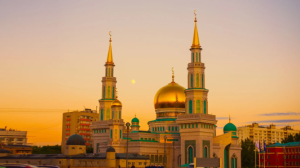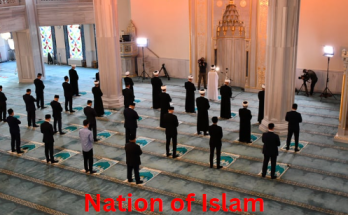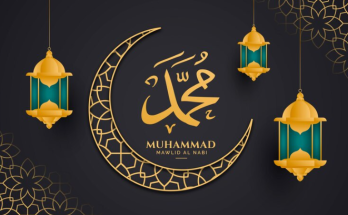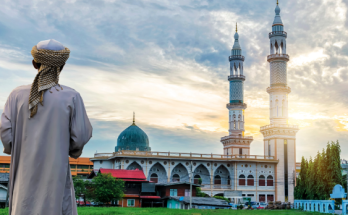تاريخ دين الإسلام
تعتبر الإسلام واحدة من أكبر الأديان في العالم، حيث يتبعها أكثر من مليار ونصف المليار مسلم في جميع أنحاء العالم. يعود تاريخ الإسلام إلى القرن السابع الميلادي، حينما تلقى النبي محمد (صلى الله عليه وسلم) الوحي من الله عبر الملاك جبريل، وبدأ بنشر الرسالة الإسلامية في مكة.
ولد النبي محمد في مكة في العام 570 ميلادي، وعاش في فترة تعتبر مضطربة في التاريخ العربي. كانت مكة مركزًا تجاريًا هامًا ومقصدًا للقوافل التجارية العربية، ولكنها أيضًا تعاني من الفساد والظلم الاجتماعي. في سن الأربعين، تلقى النبي محمد الوحي الإلهي الأول في غار حراء، حيث استلم رسالة من الله ليكون رسولاً ونبيًا للبشرية.
بدأ النبي محمد بنشر رسالته في مكة، وواجه معارضة شديدة من القادة القبليين والمشركين الذين كانوا يخشون فقدان سلطتهم وتحطيم نظامهم الاجتماعي. في عام 622 ميلادي، هاجر النبي محمد وأتباعه إلى المدينة المنورة بعد أن تلقى دعوة من الأنصار (المسلمين المحليين في المدينة) ليصبحوا قادةً للمدينة ولحكمها.
في المدينة المنورة، بنى النبي محمد دولة إسلامية جديدة ونظم المسائل الاجتماعية والقانونية والسياسية. قام بإقامة أول مسجد في المدينة المنورة وبناء العلاقات الدبلوماسية مع القبائل الأخرى. توسعت قاعدة المسلمين وزاد عددهم بسرعة، واستطاع النبي محمد تأسيس دولة إسلامية قوية في المدينة.
بعد وفاة النبي محمد في عام 632 ميلادي، تولى أبو بكر الصديق رئاسة المسلمين كخليفة للنبي. خلال فترة حكمه، شهدت الدولة الإسلامية توسعًا هائلاً، حيث تمت الغزوات والفتوحات في مختلف أنحاء العالم الإسلامي الحديث. تم انتخاب عمر بن الخطاب كخليفة ثانٍ، وتمت معركة القادسية الشهيرة في عهده. في عهد عثمان بن عفان، تمت توسيع الإسلام إلى الأراضي البعيدة مثل شمال إفريقيا والمغرب والشام.
في العصور الوسطى، انقسم العالم الإسلامي إلى عدة إمبراطوريات ودول منفصلة. قامت الدولة العباسية في بغداد بإنشاء حكم إسلامي قوي وترعرعت فيه العلوم والفلسفة. فيما بعد، انفصلت الدولة الفاطمية في مصر والدولة الأموية في إسبانيا والدولة العثمانية في تركيا. وشهدت هذه الدول والإمبراطوريات توسعًا كبيرًا للإسلام وانتشاره إلى مناطق جديدة.
على مر العصور، شهد العالم الإسلامي فترات من الازدهار الاقتصادي والثقافي والعلمي. ترجم العلماء المسلمون الأعمال اليونانية والهندية والفارسية إلى العربية، مما ساهم في تطور المعرفة في العالم الإسلامي. تأثرت الثقافة الإسلامية بالعديد من الثقافات الأخرى، وتطورت العمارة الإسلامية والفنون والأدب والموسيقى.
على مر العصور الحديثة، شهد العالم الإسلامي تحديات جديدة وتغيرات سياسية واجتماعية واقتصادية. تأثرت بعض البلدان الإسلامية بالاستعمار والاستعمار الثقافي وشهدت صراعات داخلية وتحولات سياسية. في نفس الوقت، ازدهرت الحركات الإسلامية وظهرت تيارات جديدة في الفكر الإسلامي.
في الوقت الحاضر، يعيش المسلمون في جميع أنحاء العالم ويمارسون دينهم بمختلف الطرق. يتعلمون القرآن الكريم ويؤدون الصلوات الخمس ويتبعون تعاليم الإسلام في حياتهم اليومية. يلتزم المسلمون بالقيم الإسلامية مثل العدل والرحمة والتعاطف والاعتدال.
باختصار، تاريخ الإسلام يمتد لأكثر من 1400 عام، ويتضمن فترات من الانتشار والازدهار والتحديات. يعتبر الإسلام جزءًا هامًا من الهوية والثقافة في العالم الإسلامي، ويستمر المسلمون في تعبير عن إيمانهم وممارسة تعاليم دينهم في حياتهم اليومية.
History of the religion of Islam
Islam is considered one of the largest religions in the world, with over one and a half billion Muslims following it all over the world. The history of Islam dates back to the seventh century AD, when the Prophet Muhammad (may God bless him and grant him peace) received a revelation from God through the angel Gabriel, and began spreading the Islamic message in Mecca.
The Prophet Muhammad was born in Mecca in the year 570 AD, and lived during what is considered a turbulent period in Arab history. Mecca was an important trading center and destination for Arab trade caravans, but it also suffered from corruption and social injustice. At the age of forty, the Prophet Muhammad received his first divine revelation in the cave of Hira, where he received a message from God to be a messenger and prophet to mankind.
The Prophet Muhammad began to spread his message in Mecca, and faced strong opposition from tribal leaders and idolaters who feared losing their power and shattering their social order. In 622 AD, the Prophet Muhammad and his followers migrated to Medina after receiving an invitation from the Ansar (local Muslims in Medina) to become leaders of the city and to govern it.
In Medina, the Prophet Muhammad built a new Islamic state and regulated social, legal and political issues. He built the first mosque in Medina and built diplomatic relations with other tribes. The Muslim base expanded and their number increased rapidly, and the Prophet Muhammad was able to establish a strong Islamic state in Medina.

After the death of the Prophet Muhammad in 632 AD, Abu Bakr al-Siddiq assumed the leadership of Muslims as the successor of the Prophet. During his reign, the Islamic state witnessed a massive expansion, with invasions and conquests taking place in various parts of the modern Islamic world. Omar bin Al-Khattab was elected as the second caliph, and the famous battle of Al-Qadisiyah took place during his reign. During the reign of Uthman ibn Affan, Islam was expanded to lands as far away as North Africa, Morocco, and the Levant.
In the Middle Ages, the Islamic world was divided into several empires and separate states. The Abbasid state in Baghdad established a strong Islamic rule in which science and philosophy flourished. Later, the Fatimid state in Egypt, the Umayyad state in Spain, and the Ottoman state in Turkey separated. These countries and empires witnessed a great expansion of Islam and its spread to new regions.
Throughout the ages, the Islamic world witnessed periods of economic, cultural and scientific prosperity. Muslim scholars translated Greek, Indian and Persian works into Arabic, contributing to the development of knowledge in the Islamic world. Islamic culture was influenced by many other cultures, and Islamic architecture, arts, literature and music developed.
Throughout modern times, the Islamic world has witnessed new challenges and political, social and economic changes. Some Islamic countries were affected by colonialism and cultural colonialism and witnessed internal conflicts and political transformations. At the same time, Islamic movements flourished and new currents emerged in Islamic thought.
Nowadays, Muslims live all over the world and practice their religion in various ways. They learn the Holy Quran, perform the five daily prayers, and follow the teachings of Islam in their daily lives. Muslims adhere to Islamic values such as justice, mercy, empathy, and moderation.
In short, the history of Islam spans more than 1,400 years, and includes periods of expansion, prosperity, and challenges. Islam is an important part of the identity and culture of the Muslim world, and Muslims continue to express their faith and practice the teachings of their religion in their daily lives.


